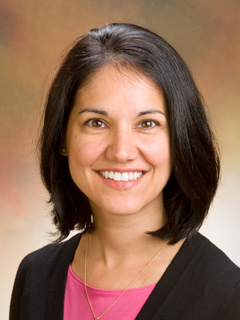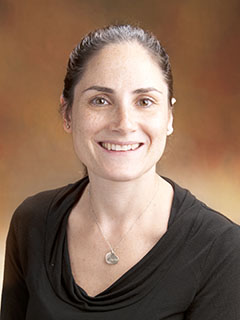HOW CAN WE HELP YOU? Call 1-800-TRY-CHOP
In This Section
NIDDK-Funded Investigator Awards Support Mentorship, Diversity at CHOP
Two Children’s Hospital of Philadelphia clinician-scientists will dedicate the next five years to training the next generation of scientists and promoting diversity in the nephrology workforce, with new funding from the National Institute of Diabetes and Digestive and Kidney Diseases (NIDDK).
The funding comes at a time when pediatric nephrology is facing a workforce shortage. From 2013 to 2019, the number of pediatric nephrologists increased from 530 to just 644 in the United States — representing the smallest increase over time of all pediatric subspecialties.
At the same time, the demand for nephrologists is increasing. Chronic kidney disease affects an estimated 37 million, or 1 in 7, American adults, according to the NIDDK. And while researchers don’t know exactly how many children and adolescents are affected by the disease, more than 1,000 are currently waiting for a donated kidney.
“There is a crisis in nephrology. Less people are going into the field, and among those who are, many are not doing research,” said Sandra Amaral, MD, MHS medical director of the Kidney Transplant and Hand Transplant programs at CHOP. “To advance the field, we need to sustain and build our workforce.”
A “lack of mentorship” is one of the main barriers that former nephrology researchers have cited for dropping out of the field, Dr. Amaral said.
To address the shortage, Dr. Amaral is a recipient of NIDDK’s K26 mentoring grant, along with Michelle Denburg, MD, MSCE, an attending nephrologist and director of research for Nephrology at CHOP and associate professor of Pediatrics and Epidemiology in the Perelman School of Medicine at the University of Pennsylvania.
As K26 award recipients, Dr. Amaral and Dr. Denburg will have dedicated support to provide mentorship to early-career mentees, including medical and graduate students and postdoctoral fellows.
Expanding Mentorship and Increasing Diversity
“I was so excited when this award opportunity was announced, because mentoring is already a significant part of how I spend my time and what I love to do,” Dr. Denburg said. “This affords me the opportunity to not only continue mentoring but to further develop my skills as a mentor.”
Dr. Denburg is a past recipient of the Carole Marcus Mid-Career Award to Promote Career Development and Mentoring in Pediatric Research, which she said was instrumental in expanding her mentoring capacity. Support from this K26 award will help sustain her active mentoring program in patient-oriented pediatric research and enable her to take on additional early career mentees from diverse backgrounds, with a focus on recruiting and mentoring individuals from populations that have been underrepresented in science and medicine.
“I have benefitted from invaluable mentorship. It has been a huge contributor to making me who I am today and how I got to be engaged in research,” Dr. Denburg said. “It’s fundamental to helping people build their skills and develop into independent investigators.”
Dr. Denburg’s multidisciplinary research program is focused on managing complications of and improving health outcomes in childhood kidney diseases. Through this award, Dr. Denburg plans to develop sustainable mentoring approaches, including working with CHOP’s Sarah Green, MPH, to implement an Inclusion, Diversity, and Equity curriculum into clinical research training.
The award aligns with Dr. Denburg’s leadership role within the NIDDK-funded Pediatric Center of Excellence in Nephrology, which provides career development activities for pre- and postdoctoral trainees. Dr. Denburg also co-directs the Penn-CHOP Kidney Innovation Center, major goals of which are to foster interest in nephrology research at Penn and CHOP and to coordinate and consolidate training and mentoring resources for nephrology fellows.
Addressing Health Disparities
A goal of Dr. Amaral’s NIDDK project will not only be to increase diversity within the nephrology workforce, but also to train the next generation of nephrology researchers about health disparities within the field and to begin to address some of those disparities through research.
While chronic kidney disease is on the rise nationwide, kidney disease requiring dialysis or transplant is far more prevalent among Black Americans than among white Americans. In terms of treatment for children, data from the U.S. Renal Data System shows that white children were twice as likely to receive a kidney transplant than Black children in 2018, and a substantially higher percentage of Black (57.3%) compared with white (40.5%) children initiated hemodialysis.
Experts say that social determinants of health, implicit bias, and racism all contribute to the disparities.
“When someone reaches end-stage kidney disease and needs a transplant, there are a lot of steps people have to go through to be eligible for a transplant,” Dr. Amaral said.
Those steps include things like medical evaluations, psycho-social evaluations, and ensuring that families will have reliable transportation and adhere to lifelong medications post-transplant.
“If you’re poor, if you’re under-educated, if you're not used to being a vocal advocate, or you don’t have reliable transportation, you can fall through the cracks, and it can take longer to get through the evaluation,” Dr. Amaral said.
The award will support two of Dr. Amaral’s research projects: The REACH-TRANSPLANT study examines racial and ethnic inequities that arise during recipient and living donor evaluation, selection, and follow-up. It aims to look at system factors that contribute to racial bias during the process and to find potential ways to reduce those biases. The second project, called House Calls, focuses on identifying and addressing adverse social determinants of health that interfere with pediatric kidney transplant evaluation completion.


